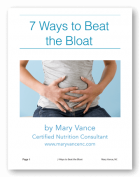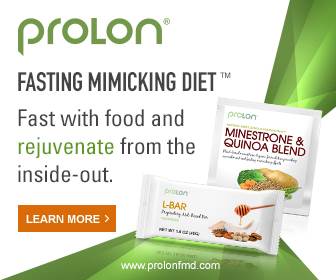Did you know that brain and gut health are intimately linked?
Your brain is connected to your gut via a long tube called the vagus nerve. There is a reason why the gut is called ‘the second brain!’ If you have inflammation in your gut due to bad bacteria overgrowth (dysbiosis), eating too much sugar, too many grains/gluten, or foods that you’re allergic to (gluten, dairy, soy being the most common), you’ll likely have inflammation in the brain as well. That may manifest as autism, ADD, ADHD, depression, schizophrenia, and other mood disorders and eventually result in neuron bundle damage, dementia or even Alzheimer’s. The inflammation in the digestive tract can begin early in life and worsen over the years, eventually resulting in brain inflammation and the listed mood disorders.
The GAPS diet: Gut & psychology syndrome. This particular healing diet plan is based on the work of Dr. Natasha Campbell-McBride using specific foods to heal the gut and therefore improve brain health.
Your Gut is Connected to Your Brain
I’ve been studying the connection between gut & brain health for a long time. Technically called the enteric nervous system, this second brain controls the gut function independently of the brain. There is a significant amount of the feel-good neurotransmitter serotonin produced in the gut. Intestinal inflammation can lower serotonin production, exacerbating depression and even contributing to constipation. That’s why anti-depressants (SSRIs or selective serotonin reuptake inhibitors) can cause digestive upset or side effects.
Because of this connection between gut and brain health, it only makes sense that healing the gut can improve certain mood disorders or neural conditions. The GAPS diet is similar to Elaine Gottschall’s Specific Carbohydrate Diet which eliminates certain complex carbs (like grains, starches) because they are not easy to digest and actually feed the harmful bacteria in the gut. The addition of so many processed grain based foods into our food supply has brought us to a place where digestive related illness is on the rise. And depression and mood related disorders too! We want to get back to a place of absorbing easily digestable nutrients in food and reversing the malabsorption that occurs as a result of our highly processed Standard American Diet with too many grains and complex carbs that aren’t easily digestable.
How to GAPS
This stuff can get pretty (needlessly) complicated with lists of foods on a do and don’t list. The GAPS diet–which is appropriate not only for the mood disorders but also to heal the digestive tract in the case of Crohn’s, IBS, colitis, celiac, etc, and even chronic constipation, bloating, gas, and other digestive concerns–has you go through an introductory phase and then introduce other foods over time. It’s basically a more complicated version of the diet I preach: eggs, meats and fish, shellfish, fresh vegetables and fruit, nuts and seeds, garlic and olive oil. Plenty of broth and even raw egg yolks from free range chickens.
Avoid these foods: sugar, sweeteners, aspartame and artificial crap, desserts and sweets, booze, processed foods, grains (rice, corn, rye, oats, wheat and anything made of wheat flour (breads, pasta, biscuits, cakes and anything from the bakery, anything with bread crumbs or batter), buckwheat, quinoa, millet, couscous, spelt, semolina, tapioca, etc), breakfast cereals, starchy vegetables and anything made out of them (potato, parsnips, yams, Jerusalem artichoke and sweet potato), milk, fruit juice, soy, coffee, beans.
This type of diet will reduce intestinal inflammation (and brain inflammation) and help heal leaky gut while also boosting good gut flora. Win-win! One also must take probiotics and use broths and fermented cod liver oil for healing. I recommend this type of plan to all my clients with digestive concerns.
The GAPS diet can be very beneficial for children with autism, ADD, or multiple food allergies.
I recommend adding sea vegetables like kombu or kelp to your broth for extra adrenal enhancing minerals. It is very important to consume all the fat in the stock, as these fats are essential for the healing process. When cold, the fat/gelatin will solidify on the top. Just spoon out a portion and heat and sip. Take this with a probiotic, or add a little juice from sauerkraut or cultured veggies to the stock before you drink.
Read more:
GAPS Diet: Gut & Psychology Syndrome, by Dr. Natasha Campbell-McBride
Breaking the Vicious Cycle, by Elaine Gottschall
http://www.breakingtheviciouscycle.info/index.htm

Mary Vance is a Certified Nutrition Consultant and author specializing in digestive health. She combines a science-based approach with natural therapies to rebalance the body. In addition to her 1:1 coaching, she offers courses to help you heal your gut and improve your health. Mary lives in San Francisco and Lake Tahoe in Northern California. Read more about her coaching practice here and her background here.








Thank you for the interesting article about linking the gut with the brain. The only part that didn’t seem right to me was the reccommendation of eating meat and eggs. Meat, dairy and eggs are inflammatory and very difficult to digest. I also believe that small amounts of grains such as quinoa , spelt, small amounts of brown or wild rice, etc. are good for you. It’s the processed foods, white flour, sugar, etc. that needs to be eliminated from everyones diet to be as healthy as can be. Vegtables (especially, big green leafy ones) should be the top of the list as to WHAT to eat the most of . I would be interested in why you are recommended meat for people with digestive disorders? Thank you, Lia Venet
Great question. I believe there is a lot of misunderstanding around which foods are inflammatory. Yes, meat can be inflammatory if one is choosing factory farmed, grain fed, conventional meat over grass fed/organic. The omega 3 to 6 ratio in conventional meat is altered and thus higher in the inflammatory omega 6s and lower in omega 3s. the grass fed/free range/pastured meats have more anti-inflammatory omega 3 which is difficult to get from vegetarian diet. and interestingly, it’s the grains that can be inflammatory and may worsen digestive issues. grains are covered in a stick protein called lectin that the body has a hard time breaking down. Those with digestive issues will have an even harder time with grains bc they are likely not producing sufficient stomach acid to help break down food. The lectin and inability to fully digest the grains increases inflammation. Here’s a great link explaining it:
http://undergroundwellness.com/hatin-on-grains/
If you are going to consume grains, always soak them overnight to increase digestability. Traditionally prepared grains were soaked and fermented to break down the undigestable components. Best foods for inflammation = meat, fish, eggs, lots of vegetables and lots of good fats and omega 3s!